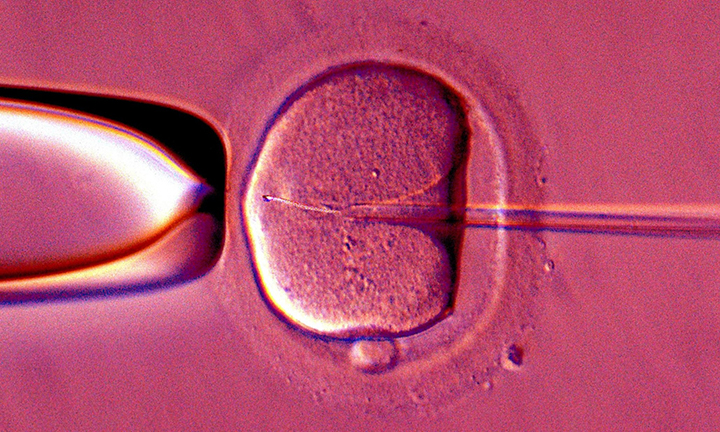
The United Kingdom has become the first country in the world to pass a bill that could allow scientists to use DNA from three different people to create babies.
The practice, which in theory could protect children from inheriting potentially fatal diseases from their mothers, is the latest development in reproductive technology. According to Maria Cheng of the Associated Press, the controversial techniques involved altering a human egg or embryo before it is transferred into the mother.
"(This is) about protecting children from the severe health risks of these unnecessary techniques and protecting everyone from the eugenic designer-baby future that will follow from this," David King, director of the secular watchdog group Human Genetics Alert, said.
Cheng reported that the vote in the House of Commons was 382-128 in favor. The bill still has a long way to go before it becomes law; the House of Lords has not set a date for debate on the measure, though Cheng expected that it would take place in the next few weeks.
"The bill must still needs approval by the House of Lords - and a further Commons vote on any amendments - before becoming law," Cheng wrote. "If so, it would make Britain the first nation to allow embryos to be genetically modified."
According to Rowena Mason and Hannah Devlin of The Guardian, the regulation was approved through a controversial amendment to the 2008 Human Fertilization and Embryology Act. Critics warned that if the measure was passed into law, it would be a step in creating "three-parent designer babies."
The Guardian reported that members of parliament (MPs) were allowed a free vote on the issue of conscience. However, both the Conservative and Labor front benches thought "it was an important scientific step forwards that did not amount to genetic modification."
Conservative MP Fiona Bruce led the opposition against the bill, arguing that parliament needed more time to debate the issues.
"I believe the regulations before us today fail on both counts, ethics and safety, and they are inextricably interlinked," she said. "One of these procedures we are asked to approve today, pronuclear transfer, involves the deliberate creation and destruction of at least two human embryos, and probably in practice many more, in order to create a third embryo which it is hoped will be free from human mitochondrial disease. Are we happy to sacrifice two early human lives to make a third?"
According to The Guardian, the Church of England and the Catholic Church in England and Wales indicated that it was unclear whether or not the technique was safe or ethical, boosting the hopes of critics to defeat it. Mason and Devlin explained the science behind what MPs are trying to make legal.
"Mitochondrial diseases are caused by genetic faults in the DNA of tiny structures that provide power for the body's cells," Mason and Devlin wrote. "The DNA is held separately to the 20,000 genes that influence a person's identity, such as their looks and personality. Because mothers alone pass mitochondria on to children, the diseases are only passed down the maternal line."
Cheng noted that mitochondria defects "can result in diseases including muscular dystrophy, heart, kidney and liver failure and severe muscle weakness." However, she emphasized that the techniques used in this process are very different.
"The technique involves removing the nucleus DNA from the egg of a prospective mother and inserting it into a donor egg from which the nucleus DNA has been removed," Cheng wrote. "This can be done before or after fertilization."
Cheng added that the technology used in this process is very different from ones "used to create genetically modified food, where scientists typically select individual genes to be transferred from one organism to another."
From a genetic standpoint, The Guardian admitted that babies conceived under this procedure would technically have three parents. The mother and father would contribute 99.8 percent of genetic material, while the "mitochondrial donor" would only contribute 0.2 percent.
















